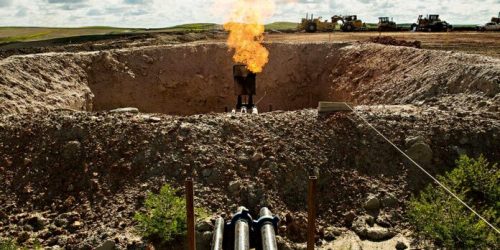As part of its plan to reduce greenhouse gas emissions and become carbon neutral by 2050, the European Union (EU) will consider the creation of a legally-binding framework at the international level for methane emission reduction, including in the energy sector.
In its EU strategy to reduce methane emissions published on Wednesday, the European Commission said that the scope of actions for energy-related methane emissions covers the entire oil, natural gas, and coal supply chains, including liquefied natural gas (LNG), gas storage, and biomethane introduced into gas systems.
“The Commission will consider methane emission reduction targets, standards or other incentives for fossil energy consumed and imported in the EU in the absence of significant commitments from international partners,” it said in its strategy.
Methane is the second-largest gas contributing to global warming after carbon dioxide (CO2). According to estimates from the European Environment Agency (EEA), 53 percent of anthropogenic methane emissions in the EU come from agriculture, 26 percent from waste, and 19 percent from energy.
According to the EU, emissions reductions in the energy sector are feasible, and at least a third of those reductions could be achieved at no net cost to industry.
“The greatest benefits in net economic, environmental and social terms would be achieved by reducing venting and flaring, reducing leaks in fossil gas and oil production, transmission and combustion, and reducing methane emissions from coalmines,” the European Commission said.
“We have adopted today our first strategy to tackle methane emissions since 1996. While the energy, agriculture and waste sectors all have a role to play, energy is where emissions can be cut the quickest with least costs. Europe will lead the way, but we cannot do this alone. We need to work with our international partners to address the methane emissions of the energy we import,” Commissioner for Energy Kadri Simson said in a statement.





